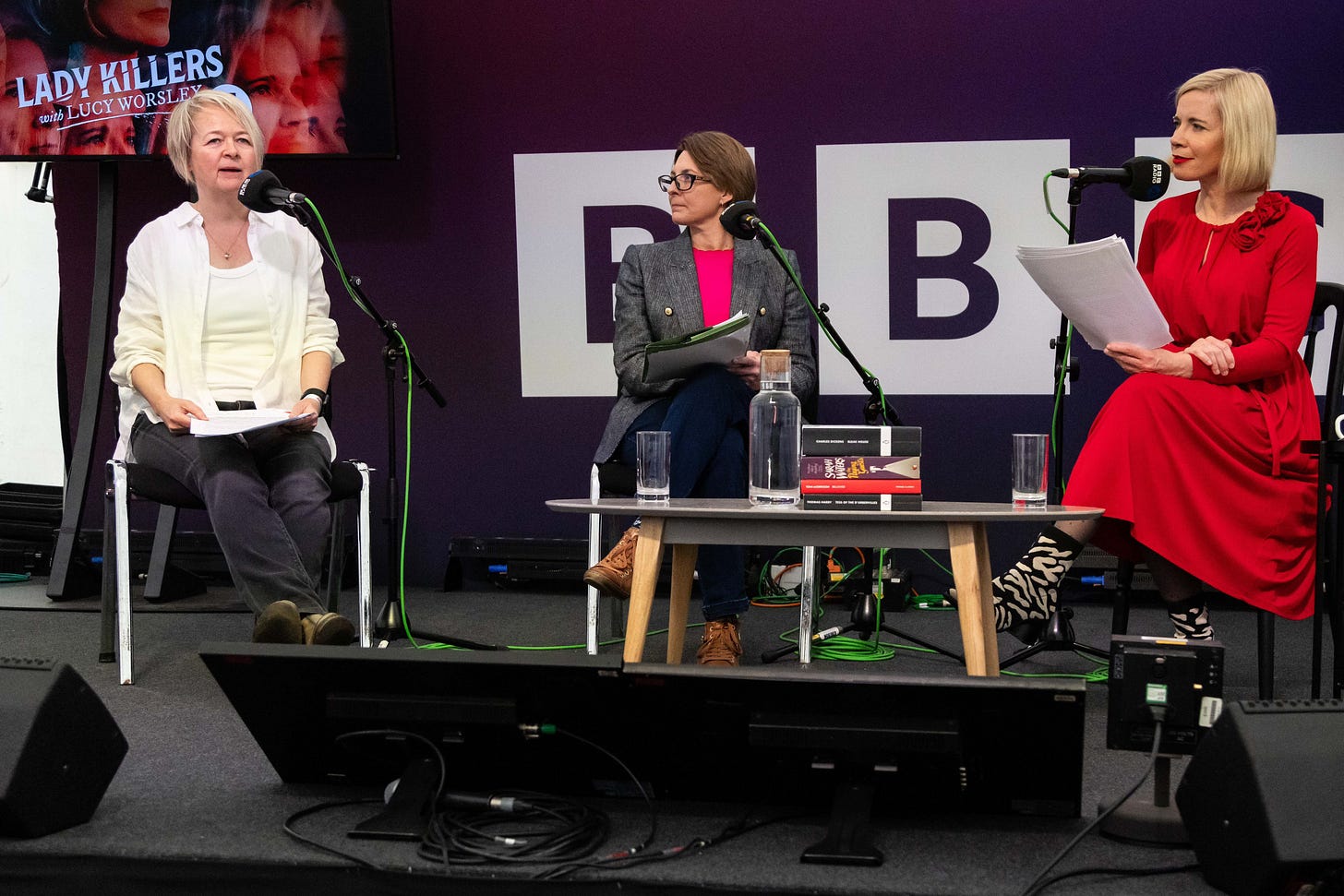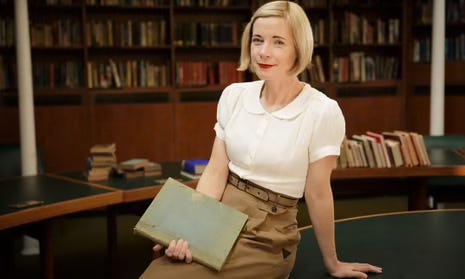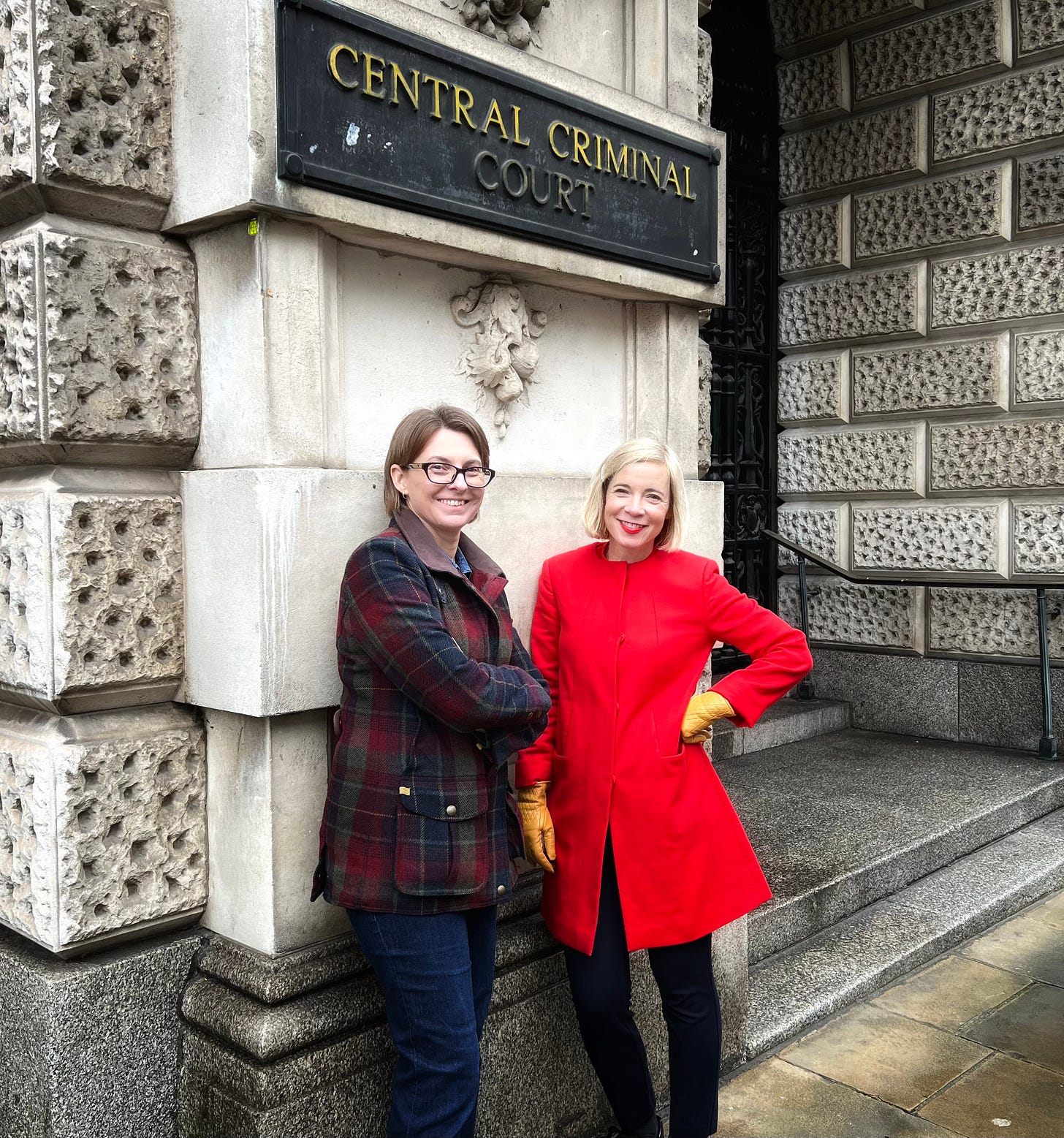Why should we bother studying history?
Almost every time I do a Q+A session, these three questions come up!
This week, the LadyKillers team have been at the Hay Festival, recording a special show with a live audience that you’ll get to hear later in the year. We stayed in a holiday house with lots of other people working in the BBC tent. We happily ate up some yoghurt left for us by The Archers, presumably it was from their farm. But Front Row came in late and woke us up in the middle of the night!

But now onto these three questions which seem to come up all the time:
Question One: Should I study history?
It’s never too late to do a history degree! In fact, if you’re thinking about historical study at any level, I say go right ahead, for three reasons.
1. Enjoyment. Don’t underestimate this. There’s huge pleasure to be had from learning about the past, and if you look at, for example, family history websites, or visiting museums, you’ll see that it makes a lot of people happy. Sometimes people visiting Hampton Court think they ought to be learning about the aesthetics of the Baroque, or the politics of the Reformation, but honestly, if you just come to eat cake with your grandma, that’s fine with me too!
2. Skills. Sometimes people think that history’s about dates and facts, but it isn’t really. It’s about developing the skills you need to dig out and to question the evidence you need to reach the facts. Skills like judgement, analysis, the ability to detect when a source is lying to you. These aren’t just skills for the historian, they’re skills for the citizen of the world.
3. Hope. The one thing you can guarantee about any period of history is that everything’s going to change. Nothing stays the same. That tells you that our own world is less stable than we think it is. For me, this is a hopeful idea. Anything we don’t like about the world today could get better.
Question Two: Do we study the past in order to predict the future?
Short answer: no.
Longer answer: I love CS Lewis’s (as in Narnia) response to this question.
‘We need intimate knowledge of the past … because we cannot study the future, and yet need something to set against the present, to remind us that much which seems certain is merely temporary fashion. A man who has lived in many places is not likely to be deceived by the local errors of his native village: the scholar has lived in many times and is therefore in some degree immune from the great cataract of nonsense that pours from the press and the microphone of his own age.’
Studying the past really makes you question what you believe to be true about the world we live in today. And I can tell you that there’s a real thirst for this knowledge. Perhaps it’s because our world feels particularly challenging just at the moment, but I’ve never felt more needed as a historian, or excited to be one.
Question Three: What do you think about imposing modern values on the past?
It’s inevitable. I fear that if a historian tells you they’re being totally objective, they’re kidding themselves.
But there’s a more subtle answer too.
Looking in the past for people like us is something that I do a lot, because of the type of historian I am. I’m what in America would be called a public historian, ie. a historian whose work isn’t intended for other historians, but for the type of people who don’t even know that they like history … yet.
So I’m always on the lookout for ways in which the past can hold meaning for us today.
Take Lady Killers, a radio and podcast series that comes from a very particular viewpoint. I say right at the start of each episode that I’m taking a feminist look at the past.
But hopefully, once listeners realise that they actually quite like history, and maybe start to get into reading books about it, and to carry out research of their own, they quickly realise that other viewpoints are available!
I see it as my job to help you get a passport to the foreign country of the past, to give you a familiarisation tour, and make you feel comfortable there.
Then I hope to hand you over to more sophisticated historians, real specialists who have the ability to re-enchant the past, to make it seem unimaginably strange.
That’s when things get good!
What do you think? Have you got a history degree? Will you ever get one??
If you liked this post, you might also like my one about what historians get wrong about Agatha Christie, and or the one about the time I lived in the library.




Thanks for the CS Lewis quote. Where is that from?
Thanks Lucy, super article setting out important truths about 'doing history'. As you know I'm an elderly, retired historian who thrives on your work and the modern approach you and other younger her and historians take to investigate the past.
I've learned lots of information from you and, more importantly, how to modify my old-fashioned approaches to history to reflect the broader and more rigorous approaches of your generation.
Thank you, please lots more of your fascinating and appropriately challenging Herstory: it's also so often 'fun' too which helps bring others to realise what fun her and his story can be.